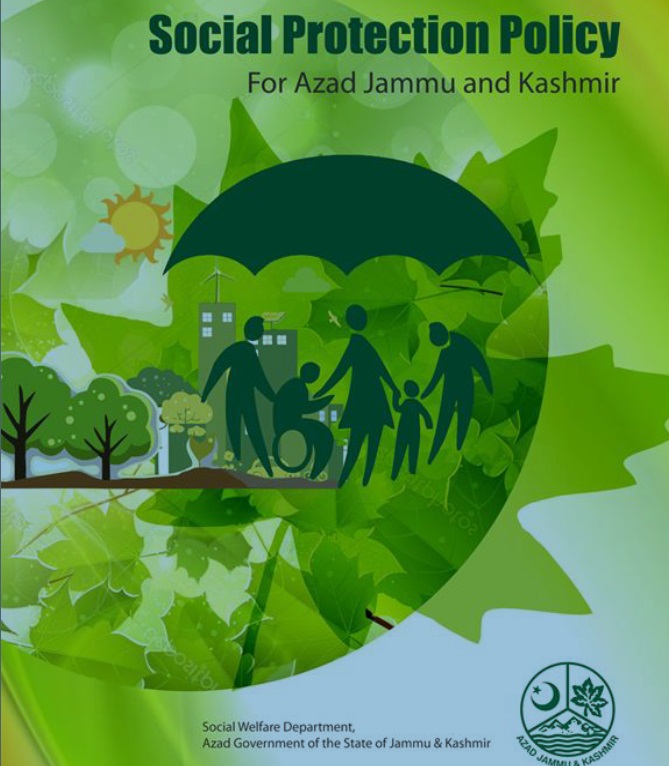
Human beings are always exposed to multiple socio-economic risks in their lifetime. These risks related to livelihoods may inhibit the realization of full potentials and render the individuals at the mercy of their circumstances. In order to effectively deal with these challenges, social security systems have evolved the world over. In AJ&K, the Social Welfare Department is entrusted with the responsibility of overseeing the welfare of the marginalized sections of society.
Reducing vulnerability and poverty is at the core of the developmental priorities of AJ&K and the Government is striving to provide assistance to the marginalised and vulnerable populations that are unable to meet their basic needs, including women, children, older persons, disabled persons, and the youth. However, despite the aforesaid, there remains an absence of a modern, elaborate social protection system which brings in fold all sections of society under some form of social security. It was in this backdrop that the Social Welfare Department ushered the formulation of the first-ever Social Protection Policy for AJ&K more than a year ago. It has been an exhilarating experience to formulate this policy, where a number of stakeholders were taken on board, and their inputs consolidated with national and international best practices to produce a synthesized Social Protection Policy.
Increasing the scope and coverage of social protection programs is a challenging task that requires vigorous strategies while ensuring sustainability. At present, the Government of Pakistan is implementing a number of social protection initiatives for people living below the poverty line in the State of Azad Jammu and Kashmir. This policy has adopted a life-cycle approach to protect each citizen of AJ&K from the risks and vulnerabilities that one can encounter over the life course, through a mix of social assistance and social insurance programs.
The life-cycle approach is a paradigm shift for us. It recognizes that all citizens are exposed to different vulnerabilities through the course of their lives and provides guidance to respond to these vulnerabilities. The policy is, therefore, structured around four key life‐course stages, i.e., pregnancy and early childhood (0-4 years), school-age and youth (5-14 years), working age (15-60 years), and old age (60+ years).
Keeping in view these vulnerabilities and life-cycle risks, the Government of AJ&K has developed this first-ever Social Protection Policy. The policy provides measures and guidelines for integrated social protection that will help achieve sustainable development in the State of Azad Jammu and Kashmir. It gets critical importance in addressing the challenge of bringing the informal sector into the fold of social protection – although being most vulnerable, they are often left outside the purview of any social security mechanism.
The policy envisions strengthening all components of the social protection system, including developing a population registry, and the Government is committed to implementing the requisite safety nets and social protection floors. The policy provides a framework and guidelines for undertaking social protection programs and initiatives in the State of AJ&K, which require extensive collaborations across state and federal departments and donors, the UN agencies, NGOs, and the private sector. We look forward to working together with other stakeholders to reduce poverty and vulnerability, and improve social cohesion and inclusion.
Taking this opportunity, I would like to acknowledge the hard work and persistent efforts of the Director Social Welfare Department, Abdul Wahid Khan, and the Consultant for Policy Formulation, Dr Jasim Anwar, for their efforts and contributions. I would also like to acknowledge the support and guidance provided by Mr. Shahid Naeem, Chief SDGs Unit, Ministry of Planning, Development & Special Initiatives during formulation process of this policy. My sincere appreciation and gratitude to all stakeholders, Government departments, and development partners, including, ILO and UNICEF, for their contributions and support in making this first-ever Social Protection Policy for AJ&K.
Click to Download Complete Social Protection Policy Document